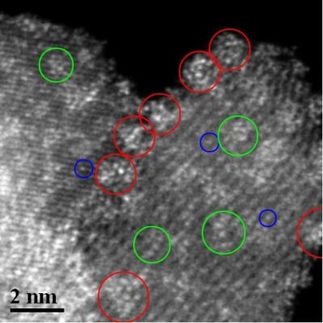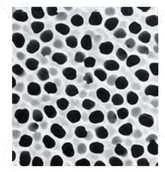Bayer Early Excellence in Science Award 2010: EUR 30,000 for young research scientists
Advertisement
The winners of the Bayer Early Excellence in Science Award 2010 have been announced. The prizes, each worth EUR 10,000, have been awarded by an independent scientific committee of the Bayer Science & Education Foundation. The Bayer foundation presents the Bayer Early Excellence in Science Award to talented young scientists in the early stages of their academic careers. This is the second year the award has been made.
This new international prize was first presented in 2009. It is awarded annually in the three categories biology, chemistry and materials. To be eligible for the Bayer Early Excellence in Science Award, candidates must have completed their doctorate within the last five years. The selection is made on the basis of the originality and quality of candidates’ research and the significance of this work for the respective award category.
Biomimetics: Tailor-made solutions from the world of biology for technical challenges
Dr. Andreas Walther from Aalto University in Helsinki / Finland receives the Bayer Early Excellence in Science Award 2010 in the materials category for the development of innovative, pearlescent biomimetic materials that exhibit impressive properties in terms of their mechanical stability and flame retardance. This makes them very interesting for use in maritime, aviation and aerospace applications. A new production process enables the cost-effective manufacture of hybrid materials thanks to the self-organizing properties of the individual components.
Organometallic catalysis: A precise and efficient tool for preventing by-products
To produce complex products such as natural and active substances, it is often necessary to activate carbon atoms and trigger specific chemical transformations. Prof. Nicolai Cramer from École polytechnique fédérale de Lausanne (EPFL) in Switzerland receives the Bayer Early Excellence in Science Award 2010 in the chemistry category for his in-depth developments and research into new catalytic organometallic reactions for activation of carbon-hydrogen and carbon-carbon bonds.
G proteins: New strategies for treating diseases and illnesses such as cancer and flu
Dr. Oliver Daumke from the Max Delbrück Center for Molecular Medicine in Berlin receives the Bayer Early Excellence in Science Award 2010 in the biology category for his contributions to the understanding of the structure and function of GTP-binding (G) proteins. G proteins can act as molecular switches that control growth signals in biological cells. Other G proteins function as molecular motors that deform cellular membranes. The group headed by Dr. Daumke investigates the differences and similarities between these two classes of G proteins.




































































